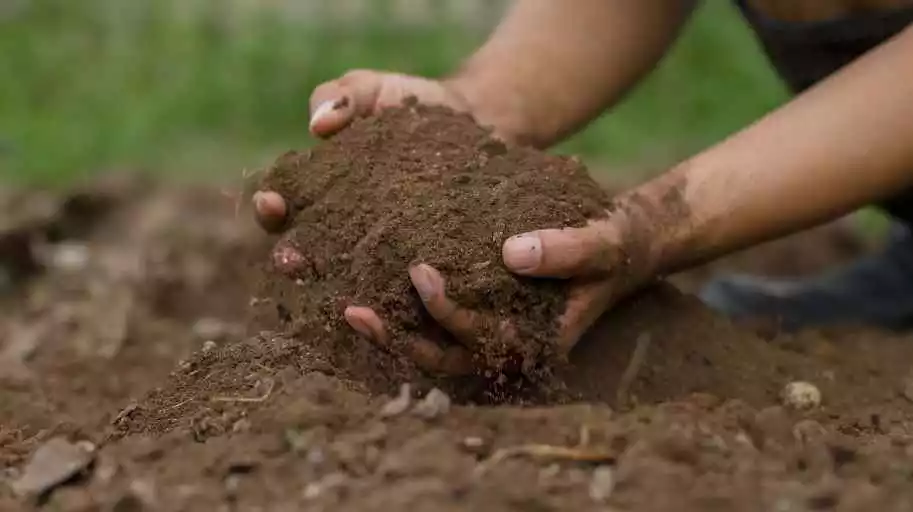Do you have a green thumb? Are you looking to get into gardening, but not sure where to start? Preparation of the soil is one of the most important aspects of gardening, and can make all the difference in your success or failure. Here are six basic tips for preparing your garden soil.
Importance of soil preparation for gardening
Gardening is a fun and rewarding hobby that can provide fresh vegetables and herbs for your family all year long. In order to get the most out of your garden, it is important to prepare the soil properly.
Soil preparation is an important part of gardening. Soil preparation refers to the process of cutting, weeding, softening, loosening, and pulverizing soil in order to properly sow plant seeds and provide subsequent seedling growth. Soil preparation, in a broader sense, is the loosening of soil with the aid of implements in order to grow plants. However, soil preparation involves a number of technologies. For instance, seeds to be sown-
- In a suitable place,
- In proper depth for germination,
- To create easy air movement conditions,
- To bring the soil of the upper area in the low and
- The soil of the low area in the upper area and also to increase.
Soil preparation is the first step in the gardening process. You could see the significance of soil preparation right away. People use pointed tools to cut, harrow, and break up the ground so that they can plant seeds or move seedlings. Soil preparation varies depending on the plants, but it is hard to explain how important it is. The following are the goals of soil preparation:
- Good soil provides essential nutrients to plants.
- well-prepared soil warms up faster in the spring, which encourages germination of seeds.
- Soil that is well-drained prevents waterlogging, which can kill plants.
- Prepared soil helps prohibit weeds from taking over your garden plot.
- Regularly amended soil produces healthier plants that are better able to resist pests and diseases.
- Properly prepared soil also helps retain moisture, making water conservation easier.

Here are six reasons why soil preparation is so important for gardening:
1. Making soil suitable for seed germination
Soil preparation is the process of making soil friable in order to make it suitable for seed germination and plant growth. Plowing repeatedly softens, granulates, and fines the soil. Because of this, the soil becomes a place where seeds can grow and plants can grow well.
Soil preparation depends on the type of soil, the organic matter in the soil, the amount of moisture, and the types of plants. You can prepare the light soil, such as loamy, sandy, or sandy-loam soil, by using 3–4 plows for optimum plant growth. On the other hand, heavy soil preparation requires 5-6 plows, such as clayey soil.
Soil gets friable if there is moisture in the soil during plowing, otherwise plowing creates larger soil clods. The soil particles remain granular and consolidated if there is high organic content in the soil. And the soil preserves the seed well and helps to germinate easily.
2. Mixing fertilizer and organic matter in soil
It is necessary to apply fertilizer and organic matter to the soil of your lawn. One of the objectives of soil preparation is to mix fertilizer and organic matter into the soil. For that reason, after one or two ploughings, compost or organic fertilizer should be broadcast in the soil, and these are mixed with soil during subsequent ploughings.
Sesbania bispinosa, a legume, is sometimes cultivated as a green manure plant, and it is mixed with soil before flowering to enrich the soil in organic matter and fertility.
3. Controlling soil-borne insects
Many insects in the soil are extremely harmful to plants. Termites, crickets, and ants are the most common soil-borne insects. These insects, along with their cocoons and eggs, are exposed to sunlight and killed by birds and during soil preparation.
4. Increasing water-holding capacity in soil
Soil preparation increases the soil’s water-holding capacity. Water evaporates quickly and is carried away as runoff from uncultivated land. Tilled land, on the other hand, absorbed more fertilizer and irrigation. As a result, tilled soil has a higher water-holding capacity. When seeds are planted in that soil, they germinate and grow quickly.
5. Increasing micro-organism activities in soil
Various micro-organisms help soil keep health good. Among them, fungi and bacteria are the main. These organisms, remaining in the soil, help to decompose soil organic matter. Proper soil preparation helps activate these soil organisms. As a result, plants can uptake nutrients easily and yield good plants.
6. Controlling soil erosion
Compaction of the ground and leveling of high-low soil are significant objectives of soil preparation. As a result, rainwater or irrigation water cannot flow off the land. Soil preparation ensures optimal water usage while preventing soil erosion.
Verdict
Good soil preparation is essential for successful gardening. By taking the time to properly condition your soil, you will provide a strong foundation for your plants to grow. This will result in healthier plants that are better able to withstand pests and diseases. Soil preparation also helps improve drainage and prevents compaction, which can lead to fewer weeds. In sum, investing the time and effort into preparing your soil will pay off in a more beautiful and bountiful garden.



